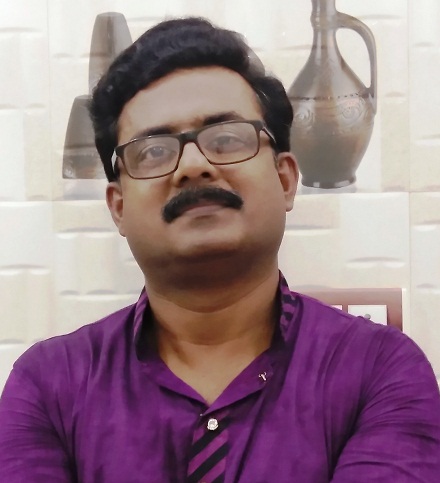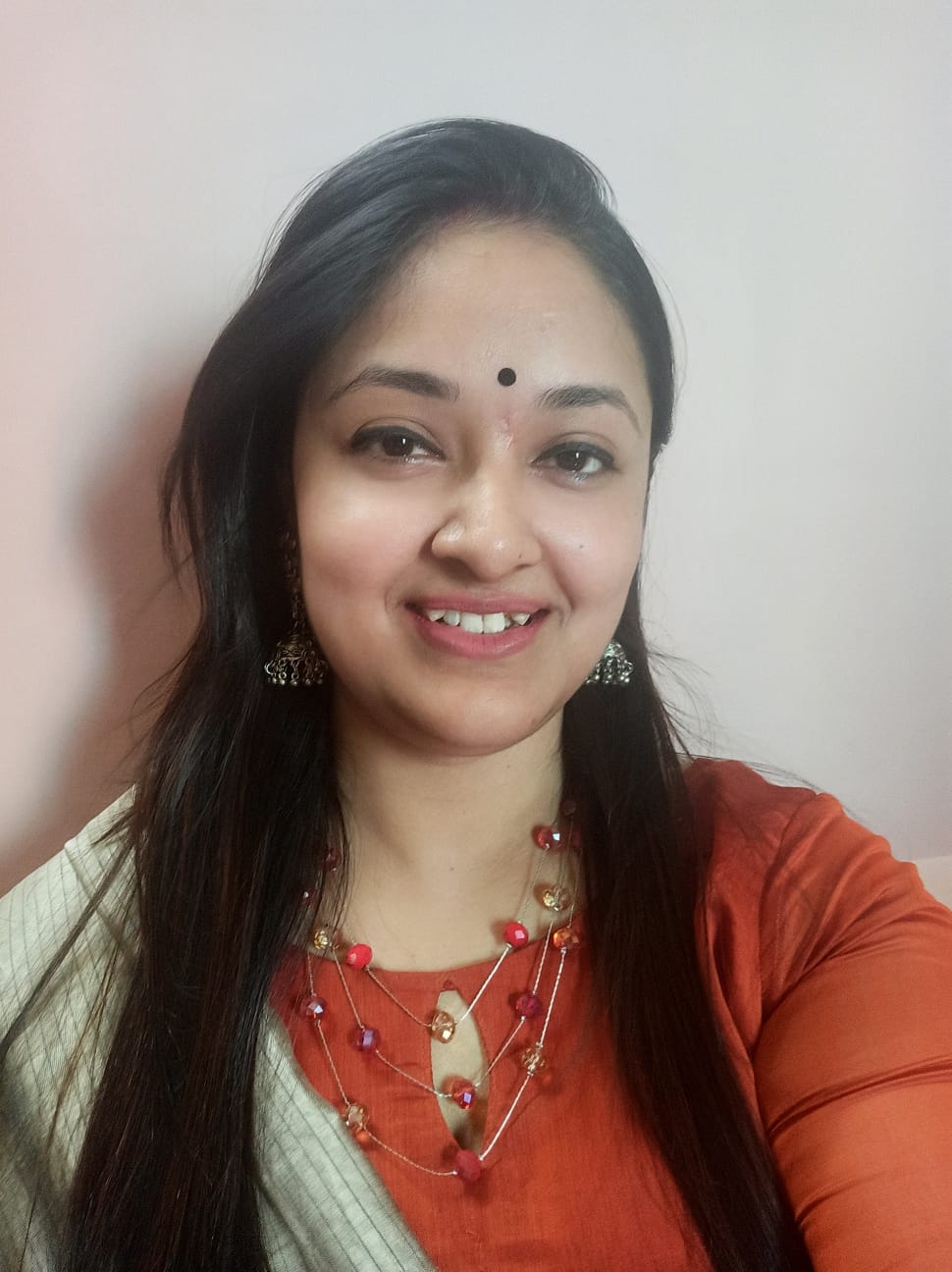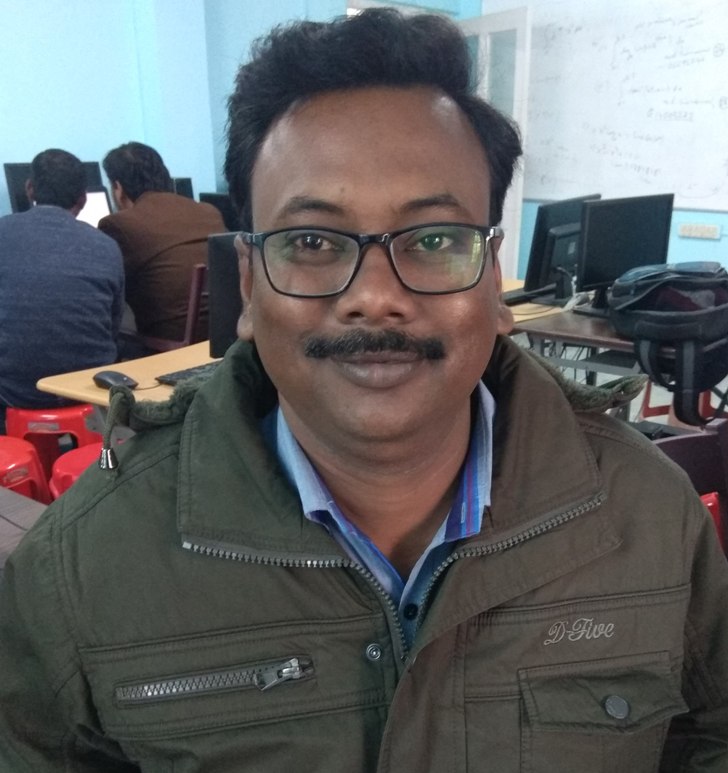History
- Introduction
- Curriculum
- Teaching & Learning
- Learning Resources
- E-Learning initiatives
- Seminar, Conferences, Webinar and Workshops
- Notices & Events
- Contact Information
History of the Department
The Department of History of Dr. Meghnad Saha College started its journey in the year of 2000, along with the establishment of the college itself. Initially the department offered the General course. In the year 2004, Honours course was introduced, which carried forward the real benefit to a large number of adjacent rural students in the locality. Presently, the department intakes 84 students in the Graduate Honours Course. The students of the department have excelled in various spheres of life through their academic and extracurricular activities. Their blooming ideas are reflected in the Departmental Wall Magazine entitled “Protyoy” and the annual Departmental Model Exhibition, which gives them anunusual sensation to present their thoughts on history and culture. By the help of Departmental Library, Class Test, Debate, Group Discussion, Excursion, Nature Study Camp, Seminar, Local historical places visit, Museum visit, District State Library visit etc. students of history are benefited immensely for their future life.
As a whole, the department of History stands out to the venture of transforming itself to the next orbit of academic excellence.
Vision and Mission
- The Department of History prepares its students for a wide range of career option by building their intellectual understanding of the past.
- History, as a subject of social science makes the students aware of society, culture and economy of various periods, which in turn make them understand the society as a whole.
- We aim to give our students quality education so that they can pursue their aim of achieving higher education and research activities.
- The Department seeks to builds set of values and analyzing power among its students which will make them conscious citizens who participate in various service activities and in broader spectrum empower the Nation.
Honours Program
Objectives of Honours Program
- To gain knowledge of long term Historical development of whole world with special reference to Indian history
- Students are enabled to think critically of the past, so they can analyze the present and future historical developments.
- We aim to emphasize on writing and communication skill so that the ability to think and write transcend the classroom or only book based knowledge.
- The Honours course develops awareness on broader political ideologies, social organizations, environmental issues, gender, class, race, religious organizations, regional identity and caste identity.
- The Honours program develops among the students Historical skills such as critical thinking and reading, to develop research questions and historical arguments.
Syllabus for the Honours Program
*For(1+1+1) system students – CLICK HERE
*For CBCS system students- CLICK HERE
Course Outcome For CBCS Students
DC-1,History of India: Pre-history to 6th Century BC:-
Students can understand the geographical background of Ancient India, various sources for reconstruction of Ancient Indian History, Pre and Proto History and background of the emergence of early Historic India.
DC-2,History of India: 6th Century BC-Gupta Period:-
This paper helps the students to understand material and ideological background of religious protest movement in Ancient India, emergence of early imperialism from 16 Mahajanapadas to post Mauryan period and socio economic and political changes during the Gupta period.
DC-3, History of India: Post-Gupta to 1200 AD:-
From this segment of the syllabus students get to learn about the Polity, Economy, Culture of Post Gupta period.
DC-4, History of India: 1200 AD to 1526 AD (Political History):-
From this paper students learn about the Political History of the Delhi Sultanate Period.
DC-5, History of India: 1200 AD to 1526 AD (Socio-Cultural, Economic history):-
From this part of the syllabus students are able to understand the Socio Cultural and economic history of North India, religious and cultural movements and the emergence of Regional Imperialism in the southern part.
DC-6, History of India: 1526 AD to 1707 AD (Political History):-
Sources of the Mughal period, Polity, Decline of Mughal Empire and emergence of successor states, patterns of Regional Polity are studied in this segment
DC-7, History of India: 1526 AD to 1707 AD (Socio-Economic and Cultural History):-
This paper deals with Environmental issues, trade, commerce and themonetary system, urban centers and cultural developments with special reference to language, literature, architecture, visual and performing arts.
DC-8, History of India: 1707 AD to 1818 AD:-
The syllabus covers about the understanding of Modern Indian Political, economic, socio cultural concept, expansion and consolidation of British rule, colonial state and ideology, rural economy , society of the part of the study.
DC-9, History of India: 1818 AD to 1885 AD:-
From this paper students can learn about the development of Indian awakening with special to Bengal, Cultural changes and Socio Religious reform movements and revolt of 1857.
DC-10, History of India: 1885 AD to 1950 AD:-
This paper contains about the beginning of Indian Nationalism and its historiography, Indian National Movement, communal politics and partition of India and framing of the constitution.
DC- 11, Rise of the Modern West: Mid 15th-17th Century:-
From this segment of the syllabus students learn about the History of the Rise of Modern West from Mid 15th century to 17th century. Students are given an in depth idea of European Renaissance, Reformation and Counter Reformation movement, Humanism, Colonial expansion.
DC-12, Rise of the Modern West: 17th –Mid 18th Century:-
17th century crisis, English Glorious Revolution, Scientific Revolution, Industrial Revolution, American war of Independence, Mercantilism, and transition from Feudalism to Capitalism is the subject matter of this paper.
DSE-1A India after Independence:-
From this segment students get an in depth idea about the making of the Republic, integration of princely state, Indian democracy, society and culture.
OR
1B, Economic History of Modern India:-
Students are able to know about the colonial economy, agricultural structure, land settlements, industry, trade and commerce of Modern India.
DSE- 2- A, History of China and Japan:-
This paper deals with the development of Chinese Imperialism, Feudalism, Emergence of Nationalism, and Communism. Japanese transition from feudalism to capitalism, Meizi restoration, Rise of Militarism, Korean Nationalism is also discussed.
OR
2- B, Regional History with special reference to North Bengal (1206-1947):-
Students are given an idea of various sources of the History of North Bengal, sultanate and Mughal expansition, conquest and expansion of Mughal rule, conquest and expansion of British rule in North Bengal, Various land revenue system and regional movement.
505-HISH-SEC-1:- Understanding Indian Heritage:- Students can learn about the different facets of Indian Heritage.
DC- 13, History of Europe: 1789 AD to 1870 AD:- Modern European Socio- Political development, Crisis of the ancient regime, emergence of Napoleon and process of Economic Changes are given an in depth idea.
DC-14, History of Europe: 1871 AD to 1945 AD:- This paper deals with the Bismarckian diplomacy, system of alliance, Russian Revolution, Peace Settlement, Great Depression and Rise of Fascism and Nazism.
DSE-3- A, Contemporary World: 1945-1990:- Outcome of the particular segment are Impact of the second World War, Origin of the Cold War, Decline of European Imperialism, De Colonization, Bi-Polarism to Unipolarism, New world system
DSE-3-B, Gender and Education:- This paper gives an idea of basic concepts and theories of Gender, Gender History, Women question, Women Movement and various relative issues on Gender perspective which helps the students to gender sensitization.
DSE- 4- A,Contemporary World: 1990-Till Date:- This syllabus covers contemporary socio-political and cultural journey of world with special focus on Globalization, Third World, Technological advancement, Economic Liberalism.
DSE-4-B,History of south-East Asia (20th Century):- Students can learn about the History of Vietnam, Burma, Cambodia, Chinaand India in this segment.
SEC- 2,Project: In this segment students get an idea of the Participatory Method of Learning by taking Educational Tour, Term-paper, and Seminar etc. So that they can get some practical based knowledge and not only confine within the classroom.
General Program
Objective of the Generic Elective
- The aim of the department is to enable the students to be historically sensitive with due attention to various time, space and context.
- The students of Generic elective study two other subjects in their three year course, so the syllabus is designed to give them elementary outline of the history of South Asia and European history.
- The course of Generic Elective is designed to empower the students to think critically of the past society, cultural organizations, environmental issues, religion, political organization, so they are being to analyze the present situation.
- The course is designed to gain to formation of knowledge of history by which they can impart the knowledge in the broader society.
- The generic elective course is designed to empower the students for engaging into various career options.
* For CBCS system students-CLICK HERE
Course Outcome Outcome For CBCS students
GE-1,and DC-1 A, History of India: Pre-history to 6th Century BC:- This is the course for studentsother than History Hons, so a cursory view of Pre-History, Proto-History, an idea of Paleolithic, Neolithic, Mesolithic and Chalcolithic culture, Harappan civilization, debate on Aryan migration, Aryan society and culture, Iron age culture is introduced to the students in this segment, which make their formation of studying of Ancient Indian History.
GE-2 andDC-2, History of India: 6th Century BC- Post Mauryas:- In this segment students are given an idea of early political formation of Mahajanapadas, Imperial Mauryan dynasty and society, Post Mauryan society and polity; at the same time they are introduced with the idea of India’s rich Cultural heritage via the study of Protestant religious movement.
GE-3 and DC-3, History of India: Gupta Empire- 1200 AD:- Ancient India’s so called “Golden Age”, the Gupta Empire, Socio-economic changes, Post Gupta period; art and religion are studied in this paper.
GE- 4 and DC-4, History of India: 1200 AD – 1556 AD:- India’s first encounter with Islam, formation of Delhi Sultanate, administrative measures and its effects, also southern peninsula with special reference to Vijayanagar and Bahmani is been studied by the students.
DSE- I A, History of India: 1556 AD – 1760 AD:- Students are offered to study the rich heritage, culture and polity of Mughal India in this segment.
OR
I B History of India: 1857 AD – 1947 AD:- Rise of Indian Nationalism and India’s freedom movement, which, later on shaped India as a Nation, is the subject matter of this Paper.
GE-I, History of India: Pre-history to Post Maurya:- Students get a cursory view of Pre-Historic period, Proto Historic period to the formation of Imperial structure of polity and society in this Paper.
SEC-2, Project:- This module is designed to put on stress on Participatory Mode of learning and students are asked to reciprocate about what they have learned via this project.
DSE- 2 A, History of India: 1760 AD- 1857 AD:- Early encounter with British colonialism, Imperialist ideologies, colonial state’s attitude to Social institutions, Colonial economic changes, Social awakening especially in Bengal, various social reformation movement, women’s’ changing position and caste movements, which later shaped the Indian societyare discussed.
OR
2 B, History of India: 1947 AD – Till Date: – Along with India’s freedom came the grave situation of partition which displaced many people. This era, their rehabilitation, Princely state’s integration, India’s situation in the global context, Linguistic state formation, Planning Commission are studied by the students.
GE-2, History of India: Gupta Empire- 1200 AD:- This paper contains a cursory view of the post Gupta political, social and cultural development.
SEC-2, Studies in History are deeply related to heritage as this is the factual proof of the past.The students are able to understand the rich Cultural Heritage as a subject matter of this segment.
| SUKUMAR BARAI |  |
| ASSOCIATE PROFESSOR & HOD | |
| M.A., B.Ed. | |

|
| ANANYA ROY CHOUDHURY |  |
| ASSISTANT PROFESSOR | |
| M.A., M.Phil. | |

|
| DR. NOBDIP CHOWHAN |  |
| SACT | |
| M.A, B.ED. | |

|
Students
Intake
| UR | OBC-A | OBC-B | SC | ST | PH | TOTAL |
| 43 | 9 | 6 | 19 | 6 | 1 | 84 |
Enrollment
Enrollment 2020-21, 1st semester Honours
| Total | Male | Female | SC | ST | OBC-A | OBC-B | General |
| 33 | 18 | 15 | 10 | 0 | 18 | 2 | 3 |
Enrollment 2019-20,2nd semester Honours:-
| Total | Male | Female | SC | ST | OBC-A | OBC-B | General |
| 58 | 41 | 17 | 22 | 01 | 8 | – | 27 |
Enrollment 2019-20, Part II Honours:-
| Total | Male | Female | SC | ST | OBC-A | OBC-B | General |
| 14 | 08 | 06 | 07 | 01 | 02 | 02 | 02 |
Enrollment 2019-20,Part III Honours :-
| Total | Male | Female | SC | ST | OBC-A | OBC-B | General |
| 37 | 20 | 17 | 17 | 01 | 03 | 02 | 14 |
History General Course:-
| Section-A | Section-B | Section-C | TOTAL |
| 185 | 185 | 185 | 555 |
Teaching Methodology: –
-
-
- The Department of History regularly conducts classes of both honours and pass course with using of LCD Projector by Power Point Presentation and chalk and talk method.
- The Department believes in Participatory learning method and not only in classroom or book based knowledge. Internal assessment has been arranged in regular interval and is evaluated properly.
- We aim to enable our students to be able for a good communication skill, thus group discussions are arranged on various relevant historical topic.
- Historical quiz competition is organized in regular interval
- We have visited Uttar Dinajpur District State Library, Uttar Dinajpur District Museum, Raiganj Wildlife Sanctuary ( Kulik Bird Sanctuary), field trip was arranged to Gour Adina, Coochbihar-Buxa, Murshidabad and various other historical places.
-
a) Bridging the world of Public Health and Environment in the time of Pandemic:-
| Date | Name of the Resource Person | Number of Participants | Level | Outcome |
| 18/06/2020 |
|
121 | International Webinar | Students realized to pay more attention on Public health and Environment by the lectures of the speakers. The limitation of Public health system in this Present Pandemic situation was also highlighted. |
b) Re- Reading Vidyasagar: Humanism, Reforms and beyond:-
| Date | Name of the Resource Person | Number of Participants | Level | Outcome |
| 29/03/2019 |
|
131 | National | This seminar highlighted the unidentified area of Philosophy and his contribution to the society. |
c) Bengali Language Movement in Bangladesh With special reference to the martyr Abul Barkat:-
| Date | Name of the Resource Person | Number of Participants | Level | Outcome |
| 24/12/2018 | Dr. S. M. Sarwar Murshed, Director, Oral History and University Linkages, Jana Itihas Charcha Kendra, Dhaka, Bangladesh | 110 | International Seminar | Background the language movement, Communal harmony through Bengali language was discussed and students got to know about the Liberation movement of Bangladesh in this lecture and the sacrifices of Abul Barkat. |
d) Tebhaga Movement in Dinajpur and Adivasi:-
| Date | Name of the Resource Person | Number of Participants | Level | Outcome |
| 24/12/2018 | Prof. Mesbah Kamal, Dept. Of History, Dhaka University, Dhaka, Bangladesh | 110 | International Seminar | The speaker has elaborated the socio economic cultural conditions of Adibashis of Bangladesh, Bengali Cultures root in Adibashi culture with special reference to Tebhaga Movement in Dinajpur. |
e) Exploring Environmental History: –
| Date | Name of the Resource Person | Number of Participants | Level | Outcome |
| 27/03/2018 | Prof. Sabyasachi Chattopadhyay, Dept. of History, Kalyani University, west Bengal, India | 97 | State Level | The outcome of the seminar was that students and other participants realized the relationship between human being and environment is mutually dependent. They understood that to protect human being we have to protect the environment. |
f) West Bengal Govt. Sponsored Seminar on Consumer Rights:-
| Date | Name of the Resource Person | Number of Participants | Level | Outcome |
| 16/09/2016 | Swapan Kumar Roy,Asstt. Director, Consumer Affairs & FPB | 87 | State Level | Students of new generation were being aware regarding the consumer rights and acts which would help them being conscious citizens and impart this knowledge to their own locality. |
HISTORY AWARD LIST DATE-2019.12.11
History Notice Date-2019.11.23
HISTORY AWARD LIST DATE-2019.11.22
History Notice Date-2019.11.22
History Notice Date-2019.11.16
History Award list Date-2019.09.04
History Notice Date-2019.08.26
History Award list Date-2019.08.10
History Awadr list Date-2019.08.10
History Notice Date-2019.07.30
HISTORY AWARD LIST DATE-2019.07.30
History Notice Date-2019.07.27
History Notice Date-2019.06.07
HISTORY AWARD LIST DATE-2019.05.31
History Award list Date-2019.01.29
History Notice Date-2019.01.24
History Award list Date-2019.01.22
History Notice Date-2019.01.11
History Notice Date-2019.01.10
HISTORY AWARD LIST DATE-2019.01.04
History Notice Date-2019.01.03
History Notice Date-2018.12.20
Telephone No.: +91-9434423900
Email: departmentofhistorydrmsc@gmail.com
WhatsApp Group Link
Semester-1: CLICK HERE
Semester-2: CLICK HERE
Part-2: CLICK HERE
Facebook Page: CLICK HERE

















